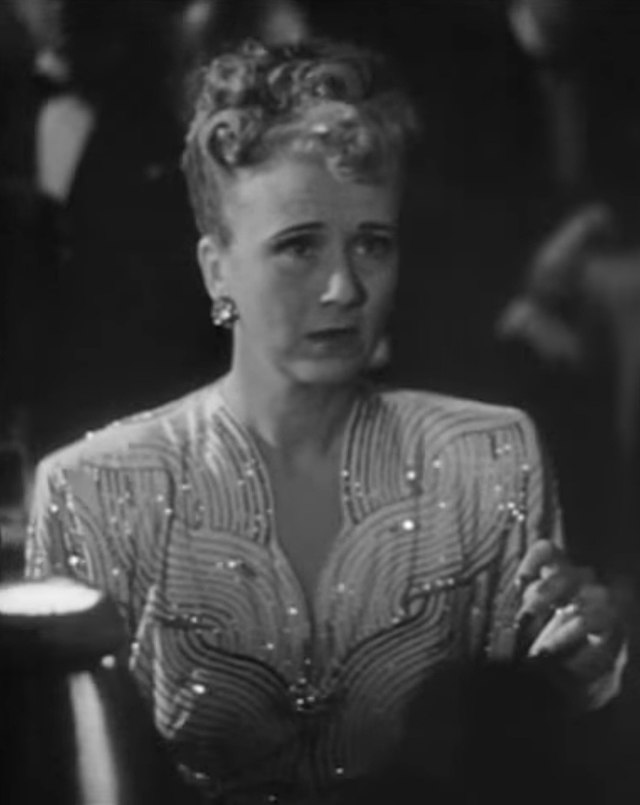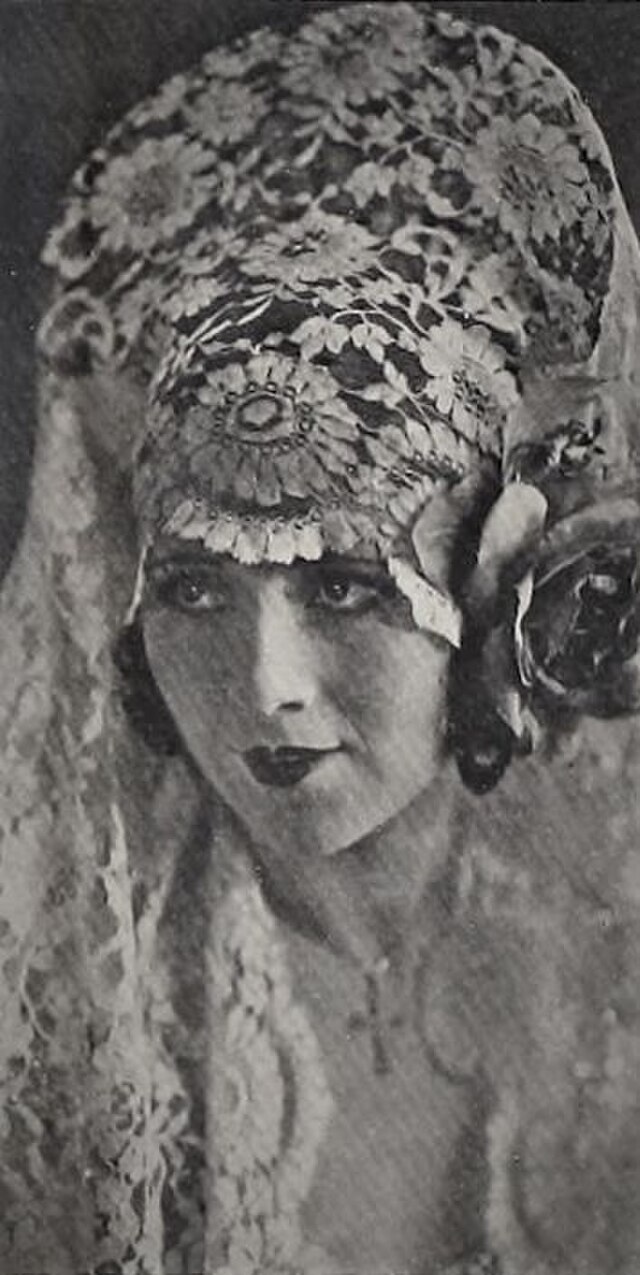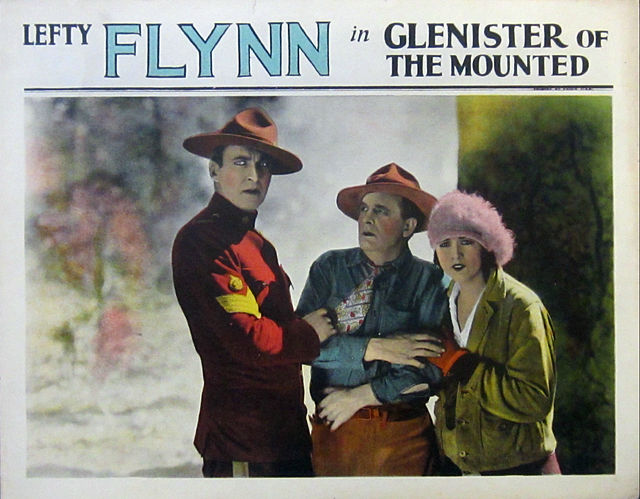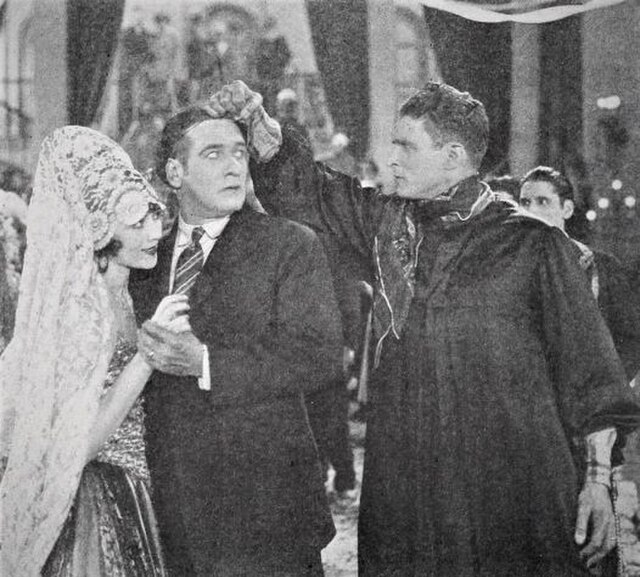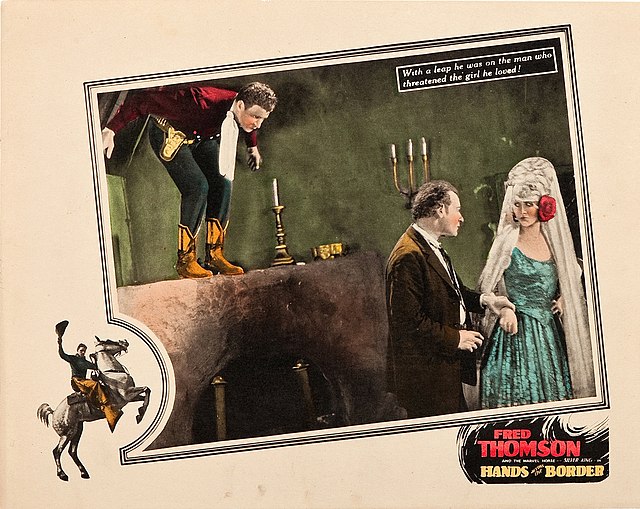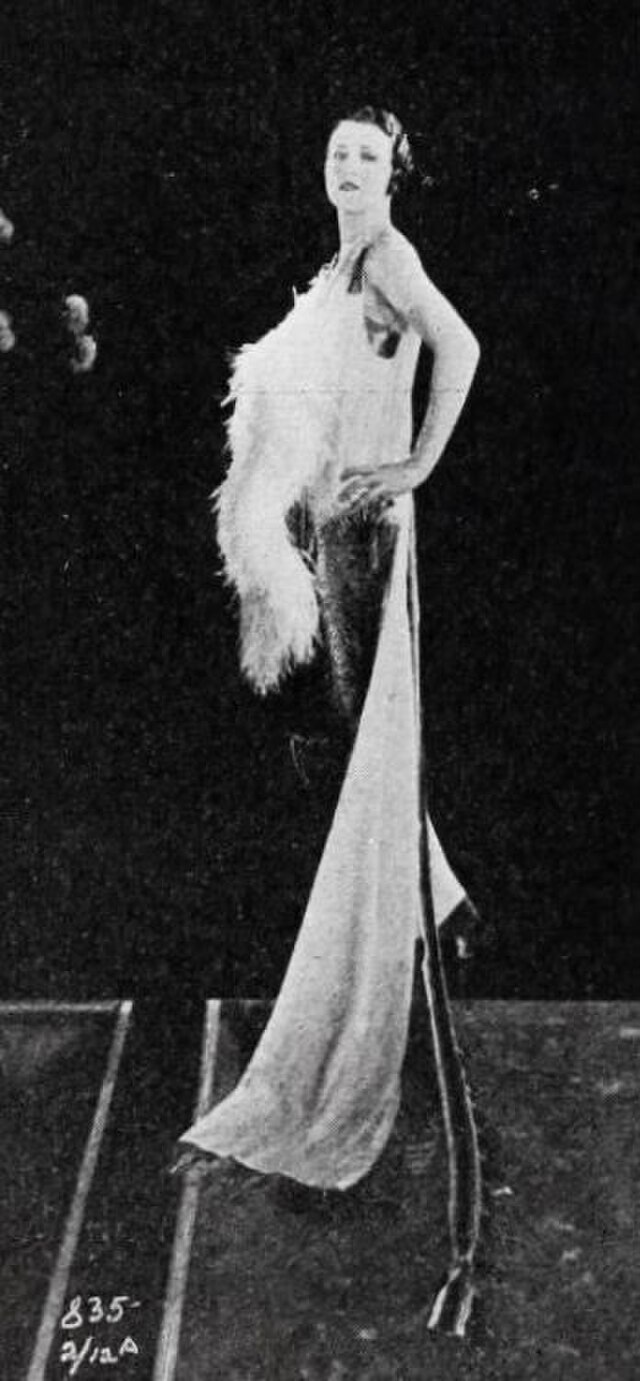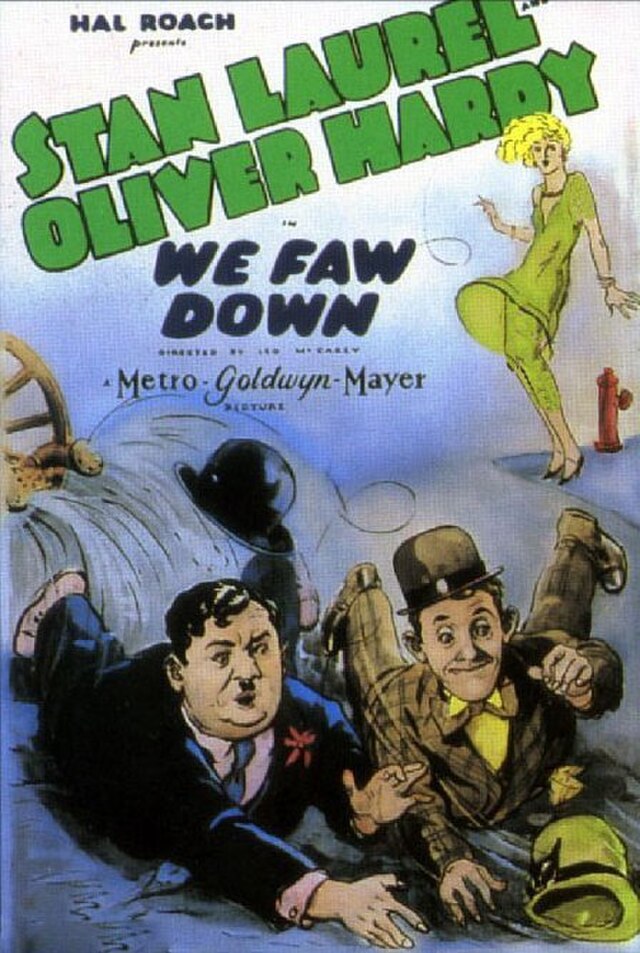Bess Flowers
back| Full Name | Bess Flores |
| Stage Name | Bess Flowers |
| Born | November 23, 1898 |
| Birthplace | Sherman, Texas, U.S. |
| Died | July 28, 1984 |
| Buried | Forest Lawn Memorial Park, Glendale, California, U.S. |
| Married to | Cullen Tate (m. 1923–1947; his death) |
| Children | One daughter, Patricia Tate |
| Notable films | It's a Wonderful Life (1946) - Sunset Boulevard (1950) - An American Paris (1951) - Rear Window (1954) - Singin' in the Rain (1952) |
Bess Flowers
The Queen of the Hollywood Extras
Bess Flowers was one of the most prolific actresses of Hollywood's Golden Age, often referred to as "The Queen of the Hollywood Extras" due to her extensive career as a background performer. Born in Sherman, Texas, in 1898, she moved to Hollywood during the early 1920s, shortly after marrying assistant director Cullen Tate in 1923.
Although her roles were mostly uncredited, Flowers appeared in over 700 films between 1923 and 1964, working with legendary directors like Alfred Hitchcock and Frank Capra. She was most well-known for appearing in pivotal crowd and background scenes of numerous Hollywood classics, including "It’s a Wonderful Life," "Rear Window," and "Singin' in the Rain."
Related
Bess Flowers (1898 – 1984)
Biography and Movie Career
Bess Flowers was born on November 23, 1898, in Sherman, Texas, to a family with no known connections to show business. Not much is documented about her early years, but like many aspiring young women of her time, she eventually found her way to Los Angeles in search of a better life and opportunities in the budding film industry. Her charm and elegant presence quickly made her stand out in the Hollywood crowd, though her journey to success was not immediate or easy. Her career began in the silent film era, where she honed her craft as a background performer—an area that she would eventually master and dominate in the decades to come.
Path to Success and the Rise of "The Queen of the Hollywood Extras"
Bess Flowers entered Hollywood at a time when the industry was rapidly evolving. The transition from silent films to "talkies" in the late 1920s was a turning point for many actors and actresses. Flowers was fortunate to seamlessly transition between both eras, partly because her work as an extra and background actor was less affected by the change in technology.
Her career blossomed with her appearances in small but memorable roles, particularly as a sophisticated party guest, a socialite, or a member of the upper-class society in various films. While she rarely had dialogue or credited roles, her stately demeanor and elegance made her an ideal fit for scenes that required such characters. This ability to become a reliable figure in the background of some of Hollywood’s most important films earned her the nickname "The Queen of the Hollywood Extras."
Throughout her career, Flowers worked with some of the most renowned directors and actors of her time. She appeared in numerous films that have become classics of American cinema, such as It’s a Wonderful Life (1946), Sunset Boulevard (1950), Singin' in the Rain (1952), and Rear Window (1954). Flowers is said to have appeared in more films nominated for Best Picture at the Academy Awards than any other actor, a testament to her extraordinary ubiquity on screen. Her presence was so consistent that for decades she became a recognizable face even though her name rarely appeared in the credits.
Personal Life and Marriages
In 1923, Bess Flowers married Cullen Tate, an assistant director who had worked with the legendary Cecil B. DeMille. This marriage provided her with some stability during the early years of her career, but it was a relationship that was deeply affected by the high demands of the film industry. Tate’s work in production and Flowers’ relentless dedication to acting made their professional lives busy. Despite their schedules, they shared a daughter, Patricia Tate, in the early 1930s.
Their marriage lasted until Cullen Tate’s untimely death in 1947, which left a deep void in Bess Flowers' personal life. After Tate's death, Flowers did not remarry. She remained focused on her career and her daughter, finding solace in the familiar world of Hollywood and continuing to act until the early 1960s.
Later Years and Retirement
Bess Flowers’ career began to wind down in the late 1950s as the Hollywood studio system was also undergoing major changes. Television was becoming a dominant form of entertainment, and while Flowers appeared in a few TV shows, her work as an extra in film is what defined her career. By the early 1960s, she officially retired from acting, having appeared in over 700 films—an unparalleled achievement.
In her retirement, Flowers largely withdrew from the public eye. She lived in Woodland Hills, California, enjoying a quiet life away from the hustle and bustle of Hollywood. Her legacy, however, remained strong, as many film buffs and historians began to notice her appearances in countless classic films.
Passions and Contributions
While Flowers was never a leading actress, she was passionate about the work she did and the roles she played within the larger machinery of the film industry. She took pride in being part of the magic of cinema, particularly in an era where the world of Hollywood was larger than life. Her professionalism, punctuality, and grace made her a favorite among casting directors and filmmakers.
Although her roles were largely uncredited, Flowers was never viewed as simply "another extra." Her elegant appearance made her the perfect fit for a wide range of films, from romantic dramas to thrillers, comedies, and musicals. Her contribution to these productions, though often overlooked, was invaluable.
Death and Cause of Death
On July 28, 1984, Bess Flowers passed away at the age of 85 in Woodland Hills, California. The official cause of death was complications due to old age. At the time of her death, Flowers was residing at the Motion Picture & Television Country House and Hospital, a retirement facility for actors and industry professionals, indicating that she remained closely connected to the world she had spent her entire life working in.
Bess Flowers was laid to rest at Forest Lawn Memorial Park in Glendale, California, where many of Hollywood’s greatest figures have been buried. Her contribution to cinema, though not often highlighted in traditional ways, is forever cemented in film history due to the sheer number of iconic movies in which she appeared.
Legacy
Bess Flowers' legacy is unique. She is remembered not for a single defining role but for her continuous presence in the background of some of the most important films in Hollywood history. In a way, she represents the thousands of background actors who have helped bring movies to life without ever stepping into the spotlight.
Flowers' career stands as a reminder of the many layers of the film industry and how vital each role, whether leading or supporting, is in creating the cinematic experiences that audiences love. While her name may not be instantly recognizable to many, her face is etched into the collective memory of film lovers around the world.
The Extra Roles of Bess Flowers
Graceful Acting Style of Bess Flowers
Bess Flowers’ acting style was characterized by her impeccable grace, subtlety, and adaptability, traits that made her the quintessential background actress in Hollywood’s Golden Age. Known as “The Queen of the Hollywood Extras,” her style was more about blending into the fabric of a scene rather than drawing attention to herself. Yet, her consistent and refined presence made her a recognizable face to astute filmgoers.
Elegance and Sophistication
A hallmark of Bess Flowers’ acting style was her ability to convey elegance and sophistication, which made her a frequent choice for roles as society women, party guests, and aristocrats. Whether appearing as a ballroom attendee or a theater patron, Flowers possessed an innate ability to hold herself with a poised, almost regal bearing. She exuded an effortless grace, often adorned in gowns and evening attire, which helped define the glamorous, upper-class atmosphere of many films in which she appeared.
This elegance was not only a result of her physical appearance but also in how she inhabited her roles. Without needing dialogue, Flowers conveyed an air of refined gentility through her posture, facial expressions, and movement. Her acting, though unspoken, suggested an intuitive understanding of the environment in which her character existed. She could seamlessly fit into the grand settings of prestigious parties or lavish dinner scenes, making them feel more alive and authentic.
Subtlety and Understatement
One of the most notable aspects of Bess Flowers’ acting style was her ability to remain in the background while contributing meaningfully to a scene’s atmosphere. Her performances were understated, avoiding any overt gestures or movements that would draw attention away from the main actors. Instead, she would skillfully react in a way that supported the central action, adding nuance and depth to the overall composition of the scene.
Her subtle expressions—such as a knowing glance, a slight smile, or a reserved nod—added realism to high-society settings. This mastery of understated acting allowed Flowers to slip into various roles across genres, from melodramas to thrillers, musicals, and comedies, without disrupting the narrative flow.
Adaptability Across Genres
Bess Flowers’ versatility as an actress was another significant aspect of her style. Over her extensive career, she appeared in films from almost every genre: comedies, musicals, thrillers, dramas, and even historical epics. In each genre, Flowers adapted her style to fit the specific tone and demands of the film.
In musicals like Singin' in the Rain (1952), Flowers’ graceful presence as a party guest fit perfectly with the larger-than-life, joyous atmosphere of the film. In contrast, in a noir film like Double Indemnity (1944), her composure and subtle glances in an office or courtroom added to the suspenseful, shadowy ambiance that defined the genre. This adaptability made her a valuable asset to filmmakers, as she could embody a variety of roles without ever overshadowing the main narrative.
Professionalism and Consistency
Flowers’ professionalism was another defining element of her acting style. She brought a level of consistency to her performances that directors relied on. Whether she was appearing in a pivotal courtroom scene in Judgment at Nuremberg (1961) or as a background guest at a socialite gathering in The Philadelphia Story (1940), Flowers delivered precisely what was needed for the scene to work.
Her consistency also extended to the way she responded to the lead actors’ performances. As a background actress, she was always aware of the emotional beats of the scene. For example, in All About Eve (1950), when Bette Davis delivered her famous line, “Fasten your seatbelts, it’s going to be a bumpy night,” Flowers’ reaction as a guest at the party is a restrained, knowing glance—just enough to acknowledge the tension but without overplaying it. This ability to react appropriately to the main action demonstrated a deep understanding of her role in the scene’s composition.
Seamlessness and Immersion
A critical part of Flowers’ acting style was her ability to seamlessly blend into scenes. While this may seem like a passive attribute, it actually required a significant amount of skill and awareness. Flowers had the unique ability to become a part of the world of the film without distracting the audience from the story.
In films like Casablanca (1942) or It’s a Wonderful Life (1946), Flowers appears in crowd scenes, yet she never fades into the background completely. Instead, she helps create a sense of believability within these iconic environments. Her presence enhances the illusion that these cinematic worlds are fully populated, vibrant, and real. Whether playing a guest in Rick’s Café in Casablanca or a local in the small town of Bedford Falls, Flowers contributed to the world-building that made these films immersive.
Versatility Without Spotlight
What set Bess Flowers apart from many of her peers was her ability to appear in hundreds of films without ever needing the spotlight. She was a versatile character actress who knew the art of invisibility—an essential skill for extras and background performers. Flowers didn’t require dialogue to communicate her role; her body language, expressions, and positioning within the frame were often enough to convey her character's place in the world of the film.
Her performances were often quiet and restrained, yet always impactful in terms of creating atmosphere. Directors valued her for this, knowing that they could place her in key scenes and trust her to deliver the necessary gravitas or lightness required.
Bess Flowers’ acting style can be summarized as one of elegance, subtlety, and consistency. Her ability to embody sophisticated characters while blending seamlessly into the background made her an irreplaceable fixture of Hollywood’s Golden Age. Despite never being a leading lady, her contribution to cinema was profound, helping to create the authentic, richly detailed worlds in which many of Hollywood’s greatest stories were told. Her acting was, above all, a form of quiet artistry that elevated the films in which she appeared, adding depth and realism to even the smallest scenes.
Awards and Recognition
Bess Flowers, known as "The Queen of the Hollywood Extras," did not receive major individual awards or formal recognition from institutions like the Academy Awards or Golden Globes during her career, despite her extensive body of work. This was largely because background actors, extras, and small part actors were not traditionally recognized with awards in the same way that leading or supporting actors were.
Lack of Formal Awards
- No Academy Award Nominations or Wins: Despite her appearances in over 700 films, many of which were major productions, Bess Flowers never received an Oscar nomination or win. This was typical for background actors of the time, as the Academy Awards have historically focused on lead and supporting roles.
- No Golden Globe or Emmy Awards: Similarly, Bess Flowers did not receive any Golden Globe or Emmy Awards, which often recognized leading and supporting actors in film and television, rather than background performers.
Recognition for Her Contributions
- Hollywood Legend Status: Although she did not receive formal awards, Bess Flowers is widely regarded in Hollywood history as one of the most prolific background actresses of all time. Her consistent presence in so many iconic films has made her a figure of admiration for film historians and enthusiasts.
- Prolific Appearances in Best Picture Nominees and Winners: One unique aspect of Bess Flowers' career is that she appeared in more films nominated for the Academy Award for Best Picture than any other actor in Hollywood history. This included classics like It’s a Wonderful Life (1946), All About Eve (1950), The Best Years of Our Lives (1946), and An American in Paris (1951), among many others. While this was not an award she personally received, it is a remarkable feat and a significant part of her legacy.
- Esteem Among Filmmakers and Casting Directors: Flowers was highly respected by directors and casting directors for her professionalism, grace, and ability to seamlessly blend into a variety of roles. Her frequent collaboration with major directors like Alfred Hitchcock, Frank Capra, and Billy Wilder speaks to the high regard in which she was held within the industry.
Posthumous Recognition
- Film Buff and Historian Tributes: In the years following her death, Flowers has gained a certain cult status among film buffs and historians, particularly those with an interest in the background and uncredited actors who contributed to Hollywood's Golden Age. Flowers is often celebrated in retrospectives about Hollywood’s history, and her role as a “super-extra” is frequently noted in discussions about the craft of background acting.
- Cinematic Legacy: While she did not receive individual awards, Bess Flowers’ legacy lies in the breadth and longevity of her career. Her ability to be a part of some of the most iconic films in cinematic history has cemented her place as an essential part of Hollywood’s visual landscape, even though she worked largely in anonymity.
Selected Movies featuring Bess Flowers
1920s
- "We Faw Down" (1928) – A Laurel and Hardy short film where two men lie to their wives to go to a poker game, but their plans go hilariously awry. Bess Flowers plays a guest at a restaurant.
- "The Ten Commandments" (1923) – Cecil B. DeMille’s epic silent film, telling the biblical story of Moses and juxtaposing it with a modern morality tale. Flowers appears as part of a crowd.
1930s
- "Grand Hotel" (1932) – A group of strangers’ lives intersect in a luxurious Berlin hotel. Bess Flowers plays a hotel guest.
- "The Kennel Murder Case" (1933) – A Philo Vance mystery where a man is found dead in a locked room. Flowers appears as a party guest at the crime scene.
- "Mr. Deeds Goes to Town" (1936) – A screwball comedy where a small-town man inherits a fortune. Flowers plays a guest at one of the formal gatherings.
- "You Can’t Take It with You" (1938) – Frank Capra’s classic comedy about a free-spirited family clashing with a wealthy one. Flowers plays a society guest.
- "Test Pilot" (1938) – A drama starring Clark Gable as a daredevil pilot whose risky career affects his personal life. Flowers appears as a party guest.
- "Carefree" (1938) – A Fred Astaire and Ginger Rogers musical about a psychiatrist who falls for his patient. Flowers plays a background dancer in ballroom scenes.
- "The Women" (1939) – A comedy-drama featuring an all-female cast, focused on the lives of high-society women. Flowers appears as one of the society women.
1940s
- "His Girl Friday" (1940) – A fast-talking newspaper comedy where a journalist is pulled back into the business by her ex-husband. Flowers appears as a background office worker.
- "The Philadelphia Story" (1940) – A romantic comedy where a woman’s ex-husband and a reporter show up before her second marriage. Flowers appears as a guest at the wedding.
- "The Lady Eve" (1941) – A screwball comedy about a conwoman who seduces a wealthy man. Flowers plays a cruise ship guest.
- "Holiday Inn" (1942) – A musical starring Bing Crosby and Fred Astaire about performers opening a seasonal hotel. Flowers appears as a guest in various musical numbers.
- "Casablanca" (1942) – A wartime romance set in French Morocco. Bess Flowers plays one of the patrons at Rick’s Café.
- "The Song of Bernadette" (1943) – A drama about the life of Saint Bernadette of Lourdes. Flowers appears in religious procession scenes.
- "Double Indemnity" (1944) – A noir thriller where an insurance agent is lured into a murder scheme. Flowers plays a background character in the office scenes.
- "It’s a Wonderful Life" (1946) – The holiday classic about a man who sees what the world would have been like without him. Flowers plays a background character in various town scenes.
- "The Best Years of Our Lives" (1946) – A drama about returning WWII veterans adjusting to civilian life. Flowers plays a guest at a formal event.
- "Lady in the Lake" (1947) – A noir thriller told entirely from the protagonist's point of view. Flowers plays a partygoer.
- "The Bishop’s Wife" (1947) – A Christmas tale where an angel helps a bishop with his personal and professional struggles. Flowers plays a guest at a dinner party.
- "All About Eve" (1950) – A drama about an aging actress and a scheming young starlet. Flowers plays a guest at one of the theater events.
- "Sunset Boulevard" (1950) – A noir drama about a fading silent film star. Flowers appears as a Hollywood party guest.
- "Harvey" (1950) – A comedy about a man whose best friend is an invisible, six-foot rabbit. Flowers plays a guest at a social event.
- "An American in Paris" (1951) – A musical about an American artist living in Paris and his romance with a young French woman. Flowers appears in ballroom and café scenes.
- "A Place in the Sun" (1951) – A drama about a man caught between two women and his ambition. Flowers plays a courtroom spectator.
- "Singin' in the Rain" (1952) – A musical about Hollywood’s transition from silent films to talkies. Flowers appears as a guest at various Hollywood events.
- "Gentlemen Prefer Blondes" (1953) – A musical about two showgirls traveling to Paris in search of love and riches. Flowers appears as a background party guest.
- "Rear Window" (1954) – Alfred Hitchcock’s thriller about a photographer who spies on his neighbors and suspects one of murder. Flowers appears as a society woman.
- "A Star is Born" (1954) – A musical drama about a young actress’ rise to fame and her romance with an older actor. Flowers appears as a Hollywood party guest.
- "White Christmas" (1954) – A holiday musical about two song-and-dance men who fall for a pair of sisters. Flowers appears in various performance and party scenes.
1950s
- "The Big Heat" (1953) – A gritty noir about a police detective seeking revenge for his wife’s murder. Flowers plays a background character in a club scene.
- "The Caine Mutiny" (1954) – A drama about a mutiny aboard a U.S. Navy vessel during WWII. Flowers plays a courtroom spectator.
- "The Seven Year Itch" (1955) – A comedy about a man whose wife goes on vacation, leaving him tempted by his beautiful neighbor. Flowers appears as a background diner guest.
- "To Catch a Thief" (1955) – A thriller about a retired jewel thief trying to catch a copycat. Flowers plays a background guest at a party.
- "The Ten Commandments" (1956) – Cecil B. DeMille’s epic biblical drama about the life of Moses. Flowers plays a background Egyptian.
- "Around the World in 80 Days" (1956) – A comedic adventure about a man who bets he can circumnavigate the globe in 80 days. Flowers plays a background attendee at an international gala.
- "North by Northwest" (1959) – Alfred Hitchcock’s thriller about a man mistaken for a government agent. Flowers appears in various background scenes.
1960s
- "Psycho" (1960) – Hitchcock’s horror masterpiece about a woman who checks into a mysterious motel. Flowers plays a guest at a small town gathering.
- "The Apartment" (1960) – A comedy-drama about a man who lets his bosses use his apartment for affairs. Flowers plays a party guest.
- "Spartacus" (1960) – An epic about a gladiator who leads a slave revolt against Rome. Flowers plays a Roman aristocrat.
- "The Misfits" (1961) – A drama about a group of outcasts in Nevada. Flowers plays a background character in bar scenes.
- "Judgment at Nuremberg" (1961) – A courtroom drama about the trials of Nazi war criminals. Flowers appears in the background of courtroom scenes.
- "The Manchurian Candidate" (1962) – A political thriller about brainwashing and conspiracy. Flowers appears as a guest at a political function.
- "What Ever Happened to Baby Jane?" (1962) – A psychological thriller about an aging actress tormenting her sister. Flowers plays a guest in a flashback scene.

